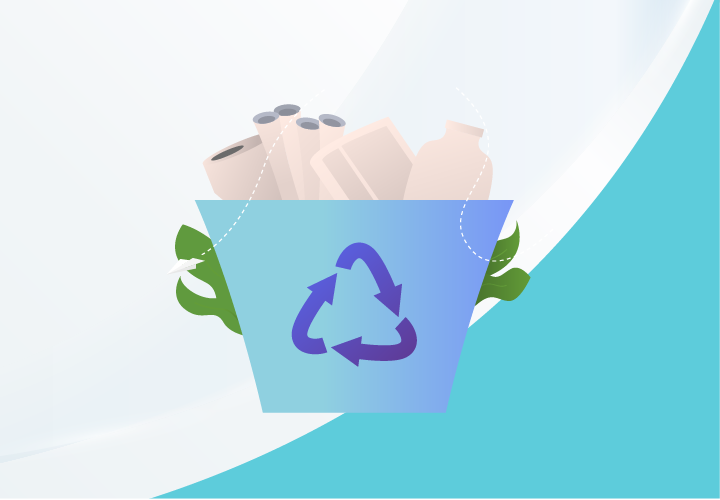Environmental Biotechnology and Waste Management Internship Program
in BIOTECHNOLOGYAbout this course
Environmental Biotechnology & Waste Management Internship Program: 6-Week Structured Learning and Experience
Introduction
Environmental Biotechnology combines biological sciences with engineering to develop sustainable solutions for environmental challenges such as pollution, waste, and resource depletion. This internship program offers practical and theoretical exposure to biodegradation, bioremediation, waste classification, treatment technologies, and sustainable practices.
Designed for environmental science enthusiasts, biology students, and eco-conscious engineers, this 6-week program explores real-world applications and culminates in a final presentation showcasing the intern’s understanding and vision for a sustainable future.
Week 1: Introduction to Environmental Biotechnology & Waste History
· Fundamentals of Environmental Biotechnology
Task: Research and write a report on the scope and significance of environmental biotechnology.
Outcome: A 500-word report introducing concepts like bioremediation, biosensors, and bioenergy.
· Evolution of Waste Management Practices
Task: Create a timeline of key developments in global waste management practices.
Outcome: A visual infographic or PPT showing historical milestones to modern circular economy models.
Week 2: Classification of Waste and Solid Waste Management
· Types of Waste
Task: Classify different types of waste and their characteristics.
Outcome: A tabular report listing solid, liquid, hazardous, biomedical, and e-waste types with disposal methods and risks.
· Municipal Solid Waste Management Case Study
Task: Analyze solid waste handling in an Indian city (e.g., Pune, Bengaluru).
Outcome: A 500-word analysis with real-world policies, success stories, and challenges.
Week 3: Biodegradation, Bioremediation & Bioenergy
· Biodegradation and Composting
Task: Study composting and conduct a composting experiment at home/school.
Outcome: A composting process journal with photos, method steps, and final compost quality assessment.
· Bioremediation Techniques
Task: Write a report on microbial bioremediation of oil spills or heavy metals.
Outcome: A 500-word article featuring real-life cases like Exxon Valdez or Love Canal.
· Anaerobic Digestion & Biogas
Task: Research biogas generation from organic waste.
Outcome: A technical brief with diagrams showing the biogas process, stages, and energy benefits.
Week 4: Industrial Pollution, Phytoremediation & Plastic Waste
· Industrial Waste Treatment Processes
Task: Document effluent treatment in an industry (textile/pharma).
Outcome: A report or flowchart of treatment stages like ETP, STP, and zero-liquid discharge.
· Phytoremediation
Task: Study how plants remediate polluted soils and water.
Outcome: A concept note featuring examples like Vetiver grass and Water Hyacinth.
· Plastic Waste Management
Task: Compare traditional plastics and bioplastics.
Outcome: A chart of material types, degradation rates, uses, and pros/cons.
Week 5: Waste-to-Energy, Microbial Cleanup, and Hazardous Waste
· Waste-to-Energy Technologies
Task: Research WtE methods like incineration, RDF, and pyrolysis.
Outcome: An infographic or PPT comparing their process flows, outputs, and environmental impact.
· Microbes in Environmental Cleanup
Task: Document specific microbes used in cleaning pollution.
Outcome: A profile sheet listing organisms, pollutants they target, and how they work.
· Hazardous Waste Management
Task: Study protocols for biomedical/radioactive/chemical waste disposal.
Outcome: A case report highlighting risk analysis and regulatory frameworks.
Week 6: E-Waste, Sustainability, Careers & Final Project
· E-Waste Management in India
Task: Analyze e-waste statistics, recycling methods, and regulations.
Outcome: A 500-word article comparing India’s practices with global trends.
· Circular Economy & Zero Waste
Task: Explore business models using circular economy strategies.
Outcome: A case summary on companies like IKEA or TerraCycle.
· Careers in Waste Management
Task: Create a guide mapping job roles and required qualifications in the field.
Outcome: A PDF guide with roles, skills, qualifications, and average salaries.
· Environmental Biotech Startups
Task: Research 3–5 startups tackling pollution/waste with biotech solutions.
Outcome: A startup report with technology overview and sustainability impact.
· Final Project Presentation
Task: Prepare a summary of key takeaways from the internship.
Outcome: A 10-slide PPT featuring visuals, concepts learned, and personal insights.
Expected Outcomes
By the end of this internship, participants will:
· Understand the core principles of environmental biotechnology.
· Analyze real-world waste management practices and treatment technologies.
· Conduct hands-on composting and biogas research.
· Investigate bioremediation, phytoremediation, and microbial cleanup strategies.
· Study environmental laws and sustainable business models.
· Explore career paths in environmental science and biotech.
· Deliver a final presentation demonstrating applied learning and creative thinking.
Requirements
Laptop
Internet Connection
Comments (0)
To understand the fundamental role of biotechnology in addressing environmental issues by exploring key technologies such as bioremediation, biosensors, and bioenergy.
To trace the development of waste management systems across history, from early sanitation to current zero-waste initiatives.
To explore and categorize different waste types based on their sources, characteristics, and environmental impact.
To analyze how Indian cities handle municipal solid waste and the challenges they face in achieving sustainable practices.
To understand the microbial processes involved in biodegradation and evaluate composting as a sustainable waste solution.
Explore how microorganisms are used to clean up polluted environments through microbial bioremediation.
Learn about anaerobic digestion and its role in producing renewable energy from organic waste.
Understand pollution control processes specific to industrial sectors.
Explore how plants are used to remove or neutralize pollutants from soil and water environments.
Understand the environmental impact of plastics and evaluate sustainable alternatives.
Understand the working and application of biosensors in detecting environmental pollutants.
Explore how biotechnology and engineering are used to convert waste into usable energy.
Understand the sources of marine pollution and biotechnology’s role in mitigation.
Understand the legal framework guiding waste management and environmental biotechnology.
Study the principles of circular economy and their integration in environmental biotech.
Explore sustainable design principles and lifecycle thinking by examining how circular economy models reduce waste and enhance sustainability.
Understand the role of community participation in waste reduction and environmental stewardship.
Explore how innovation and entrepreneurship are addressing waste and pollution challenges.
Guide students to explore diverse career paths in the environmental biotechnology and waste sectors.
Reflect on and present the knowledge and insights gained throughout the internship.









